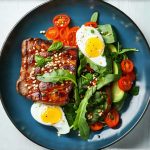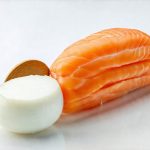We’ve all been there: a festive occasion, a comforting celebration, or simply a moment where resisting temptation proved too difficult. The result? A feeling of fullness that borders on discomfort, perhaps accompanied by guilt or regret. Overindulgence happens – it’s part of life. But how we respond after the indulgence is what truly matters. It’s not about punishment or restrictive dieting; it’s about gently guiding your body back into balance and mitigating any negative effects you might be experiencing. This isn’t a call for self-flagellation, but rather an opportunity to practice mindful recovery and reinforce healthy habits.
The immediate aftermath of overeating often triggers a cascade of physical sensations – bloating, sluggishness, potential digestive upset, and sometimes even headaches. These aren’t signs of failure, but natural responses to your system working hard to process a larger-than-usual intake. It’s important to remember that one instance of overindulgence won’t derail your overall health; it’s the pattern of behavior we need to address. Focusing on restorative practices—hydration, gentle movement, and nourishing choices—can help alleviate discomfort and restore a sense of wellbeing. This article will explore practical strategies for navigating those post-indulgence days, prioritizing self-care over restrictive measures, and ultimately getting back on track with your health goals.
Rehydrating and Replenishing Lost Nutrients
One of the most immediate impacts of overeating, particularly if it involved salty or sugary foods, is often dehydration. Our bodies require water to process food effectively, and a heavy meal can place extra demands on hydration levels. Simply drinking water is the first and arguably most important step towards recovery. Aim for steady sips throughout the day rather than chugging large amounts at once, which can exacerbate discomfort. Beyond plain water, consider incorporating electrolyte-rich beverages like coconut water or diluted fruit juice to help restore lost minerals. Herbal teas – peppermint and ginger are particularly soothing for digestion – can also contribute to hydration and provide added benefits.
Furthermore, overindulgence often means a temporary deficit in essential nutrients. While we might have consumed an excess of calories, those calories may not have been packed with the vitamins, minerals, and fiber our bodies need. Focusing on nutrient-dense foods for your next meal or two can help counteract this imbalance. Think leafy green vegetables, lean proteins, and whole grains – choices that provide sustained energy without further taxing your digestive system. Prioritize foods that support gut health, such as yogurt with probiotics or fermented vegetables, to aid in digestion and absorption. If you’re experiencing discomfort, it might be helpful to what to test after antibiotic-related gut symptoms, which can often mimic overindulgence.
A crucial element of post-indulgence recovery is avoiding the temptation to “restrict” heavily afterward. This can lead to a cycle of deprivation and overeating. Instead, focus on making mindful choices that nourish your body without inducing guilt. A light, easily digestible meal focusing on whole foods will be far more beneficial than skipping meals or severely limiting calorie intake. The goal isn’t punishment; it’s restoration. Consider planning evening gut reset meals for days when you know you may overindulge.
Gentle Movement for Digestive Support
While the urge to collapse into a food coma might be strong after overindulgence, gentle movement can actually be incredibly helpful in easing digestive discomfort and boosting your mood. This doesn’t mean hitting the gym for an intense workout! Instead, opt for low-impact activities like walking, yoga, or light stretching. Movement stimulates digestion, helping to move food through the system and reduce bloating. A leisurely walk after a meal can make a significant difference in how you feel.
The key is to listen to your body and avoid anything that feels strenuous or uncomfortable. Pushing yourself too hard could worsen digestive upset. Even ten to fifteen minutes of light activity can provide noticeable relief. Consider incorporating mindful movement practices, such as yoga nidra or restorative poses, which emphasize relaxation and gentle stretching. These practices can help calm the nervous system and reduce stress, further aiding in digestion.
Don’t underestimate the power of a simple stretch! Reaching for the sky, gently twisting your torso, or doing some basic neck rolls can all help to relieve tension and promote circulation. Remember, movement is about supporting your body’s natural processes, not punishing it for overindulging. You may also want to consider stomach-soothing foods if you’ve had a particularly high-fiber meal.
Prioritizing Easily Digestible Foods
Following a period of overeating, your digestive system needs a break. Introducing complex, heavy foods immediately after indulgence can further strain the process and lead to continued discomfort. Instead, focus on easily digestible options that won’t overwhelm your system. Soups, particularly broth-based varieties with vegetables, are an excellent choice – they provide hydration and nutrients without being difficult to digest.
Similarly, steamed or boiled vegetables are gentler on the stomach than fried or raw options. Lean proteins like fish or chicken breast, prepared simply (baked or grilled), can also be included in your next meal. Avoid high-fat foods, spicy dishes, and excessive amounts of fiber initially, as these can exacerbate digestive issues. Think about incorporating probiotics, found in yogurt or kefir, to support gut health and aid in digestion. For more information on supporting your system after discomfort, consider what to do after a reflux flare-up.
Here’s a simple guide for building an easily digestible meal:
1. Choose a lean protein source (fish, chicken breast, tofu).
2. Include steamed or boiled vegetables (broccoli, carrots, spinach).
3. Opt for a carbohydrate that is easy to digest (white rice, mashed sweet potato).
4. Avoid fried foods, excessive fats, and spicy seasonings.
Restoring Gut Health with Mindful Eating
Overindulgence can disrupt the delicate balance of bacteria in your gut, leading to bloating, gas, and other digestive issues. Focusing on gut health is therefore an important part of post-indulgence recovery. This involves incorporating probiotic-rich foods into your diet, such as yogurt, kefir, sauerkraut, or kimchi. These foods introduce beneficial bacteria that help restore a healthy gut microbiome.
Beyond probiotics, prebiotics – found in foods like bananas, onions, garlic, and asparagus – also play a crucial role. Prebiotics act as food for the good bacteria in your gut, further supporting their growth and activity. Mindful eating practices can also contribute to gut health. This involves paying attention to your hunger cues, savoring each bite, and avoiding distractions while you eat.
It’s important to remember that restoring gut health is a long-term process, not a quick fix. Consistent consumption of probiotic and prebiotic-rich foods, combined with mindful eating habits, will contribute to a healthier digestive system overall. Avoid excessive alcohol or caffeine intake, as these can also negatively impact gut bacteria. Focusing on whole, unprocessed foods and staying hydrated are essential components of a gut-friendly diet. If you often experience issues with digestion slowing down, check when digestion slows down in the evening. You can also reset your gut after a period of overeating to restore balance and promote optimal digestive function. Finally, remember that it’s okay to indulge occasionally – the key is to get back on track with healthy habits afterward!


















